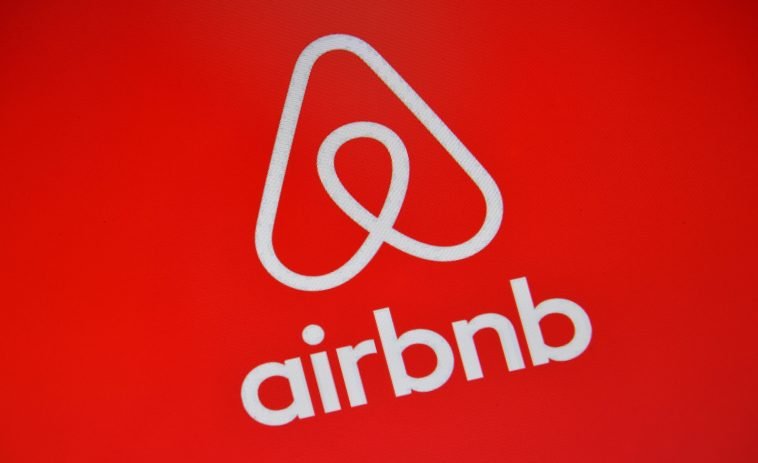Introduction.
If you’re renting out a room, an entire house, or multiple properties, the IRS has guidelines to follow, and it’s easy to get overwhelmed.
Knowing what’s deductible, what income is taxable, and the records you need to keep will make your tax season way smoother and likely save you some cash.
In this guide, I’ll cover the basics of filing taxes for an Airbnb business, break down the essential steps, go over deductions you can claim, and help you understand how Airbnb’s tax reporting works.
I’ll keep things practical and straightforward to help take the mystery out of taxes for your Airbnb rental.
How Do I File Taxes for My Airbnb Business?
1. Understand What Counts as Taxable Income.
The IRS considers income earned from renting a property—whether it’s a room, apartment, or an entire home—as taxable income.
Airbnb sends Form 1099-K if you earn over $20,000 and have 200+ transactions; otherwise, your earnings still need to be reported. Make sure you include all income, even if you don’t get a 1099 form.
2. Track Expenses for Deductibles.
One of the best parts of running an Airbnb business is that many expenses you pay for can be deducted. Here are some key deductions to keep in mind:
- Cleaning fees: Any expense related to cleaning before and after guests’ stays.
- Utilities: If you pay for water, gas, electricity, or internet for guests, these are deductible.
- Repairs and Maintenance: If the repairs are specifically for the Airbnb property, they’re usually deductible in the year they’re incurred.
- Supplies: This includes anything you provide to enhance the guest experience, like linens, toiletries, or snacks.
- Mortgage Interest and Property Taxes: If you’re renting out part of your primary residence, you can claim a portion of these expenses.
3. Use the Right Tax Forms.
- Schedule E (Supplemental Income and Loss): If you’re not considered a “material participant,” you’ll report Airbnb income here. Rental income reported on Schedule E is considered passive, which has certain tax benefits but limits deductions.
- Schedule C (Profit or Loss from Business): If Airbnb is more hands-on (like if you offer services like meals, tours, or transportation), it’s considered an active business, and you’ll report this on Schedule C. Reporting on Schedule C opens up more deductions.
4. Understand Depreciation.
If you own the property you rent out, depreciation can be a valuable deduction. The IRS considers residential rental property to depreciate over 27.5 years.
You’ll calculate this depreciation and include it as an expense, which can significantly reduce taxable income.
Keep records of when you started renting the property and any improvements made over time for accurate calculations.
5. File State and Local Taxes.
In addition to federal taxes, state and local taxes might apply to your Airbnb business. Some cities and states have specific requirements for short-term rental taxes, like occupancy or hotel taxes.
Airbnb usually collects and remits these taxes automatically, but make sure to double-check this since you’re responsible if Airbnb doesn’t cover it.
6. Report Income Accurately.
Make sure you’re accurately recording all income, even if it’s a “partial” rental where you only rent out the property for part of the year.
All income and expenses should be proportional if you only rent the property for some of the time, like half the year.
Pros and Cons of Airbnb Tax Filing
Pros
- Tax Deductions: Running an Airbnb allows access to deductions that can reduce taxable income, potentially leading to tax savings.
- Expense Tracking: Managing expenses forces better financial tracking, which can also highlight ways to increase profits.
- Business Growth: By understanding the financial side of the Airbnb business, hosts can make informed decisions about reinvestment and expansion.
Cons
- Complex Tax Rules: Short-term rental taxes are complicated, especially with mixed-use properties and varying local tax regulations.
- Time-Consuming Record-Keeping: Tracking expenses and income requires detailed, regular updates to avoid a last-minute tax scramble.
- Potential Tax Liability: If not done correctly, missed deductions or incorrect filings can result in fines or tax liabilities.
FAQ
1. How much income is reportable from my Airbnb rentals?
All rental income earned is considered taxable, regardless of the amount, although Airbnb only sends a Form 1099-K for those who meet a threshold of $20,000 and 200+ transactions.
2. Can I deduct expenses like furniture and décor?
Yes, you can deduct any furniture, décor, or items that are directly tied to making the property rentable. Just keep receipts and make sure they’re related to guest use.
3. Do I have to file taxes if I rent out a room only part of the year?
Yes, you must report all income, even if it’s for part of the year. You can prorate deductions based on the amount of time the property is rented.
4. How do I know if I should file a Schedule E or Schedule C?
If you’re just renting the property and don’t offer services, you’ll likely file with Schedule E. If you’re involved in managing the property or provide extra services, Schedule C may be more appropriate.
5. What happens if I forget to report Airbnb income?
If you forget to report Airbnb income and the IRS catches it, you could face penalties, interest on owed taxes, and potentially an audit. It’s always better to report and pay what’s due than risk fines.
Conclusion
Filing taxes for an Airbnb business can seem complex, but by keeping track of income, expenses, and deductions, you can handle it smoothly each year.
Hopefully, this guide clarifies the steps you need to take, from identifying which income is reportable to knowing which expenses are deductible.
By staying organized and consulting a tax professional if you’re uncertain, filing taxes for an Airbnb business doesn’t have to be stressful.
Are you ready to take the next step and make tax season work for your Airbnb?





GIPHY App Key not set. Please check settings